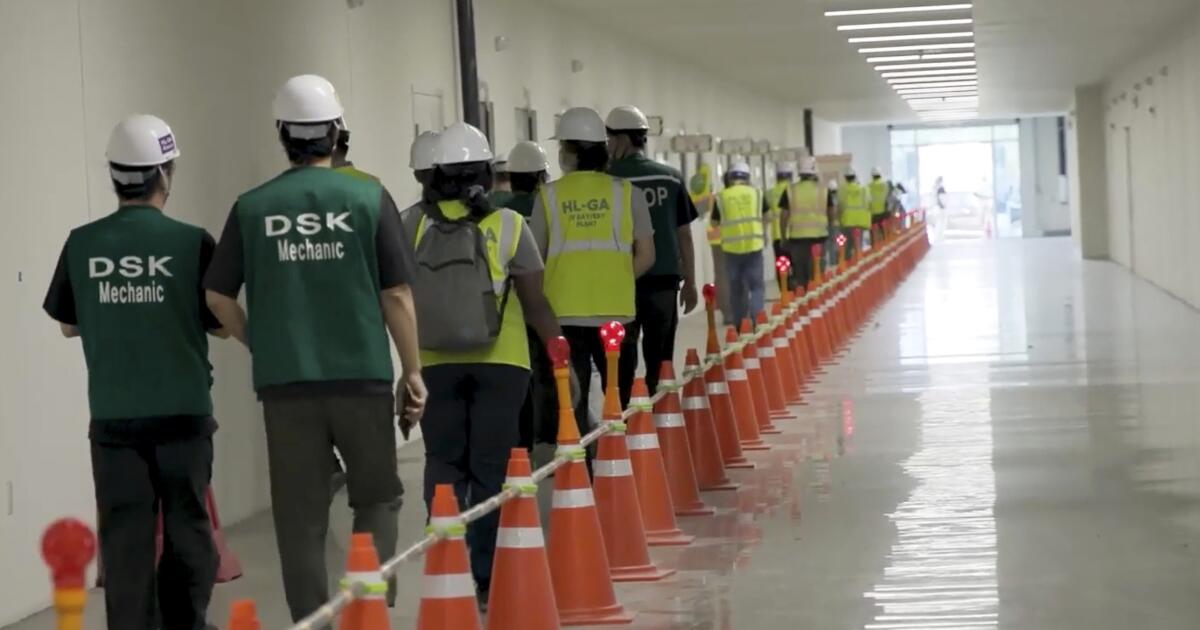UK sales boss caught working remotely from EGYPT wins £61,000 after he was sacked from his job
By Andy Dolan,Editor
Copyright dailymail

A sales boss who was sacked after bosses discovered he was working remotely from Egypt has won £61,000 in an unfair dismissal case.
Tanveer Shah was supposed to spend at least four days a week ‘in the field’ while ‘coaching, mentoring and leading his team’, a tribunal heard.
But the UK Field Sales Manager was caught working from Egypt, where he had family, for an unknown amount of time which evidence suggested ran to ‘several weeks’.
The tribunal heard his working arrangements came to light after bosses at the business called Food Hub noticed he had not been claiming as many expenses as other travelling sales staff.
Mr Shah claimed that he had contracted Covid-19 after a holiday in Egypt which meant he was unable to fly back to the UK.
However, he was sacked from app-based food delivery business after Ardian Mula, Food Hub’s CEO, accused him of ‘illegitimately taking a salary’.
But the claimant has now won £61,419 compensation after an employment judge said there were ‘fundamental flaws’ in the investigation into Mr Shah’s conduct.
The tribunal, held in Birmingham, was told that Mr Shah was initially hired as a Field Sales Executive but progressed rapidly in the business.
Based in South Wales, by the summer of 2021, he had been promoted to UK Field Sales Manager.
In early 2022, a review meeting was held between Mr Shah, his current line manager, and Mr Mula.
During the conversation, concerns were raised over the senior employee not spending enough time ‘in the field’ and a decision was made to extend his trial period in the role.
During this time, a different employee was hired and took over as Mr Shah’s line manager.
He discovered that Mr Shah had been out in Egypt. It was heard that this was not ‘not during a period of authorised annual leave’.
Evidence which later emerged suggested Mr Shah was in the north African country for ‘several weeks’.
During the subsequent tribunal proceedings, Mr Shah was ‘unable to say how long he spent in Egypt at this time’.
The panel heard that the business had a policy change at some point, which meant that employees would no longer receive a company vehicle, and would instead be granted a financial allowance to buy a car.
In February, Mr Shah’s line manager became aware that the employee had not purchased his own car.
Mr Shah was told that he was ‘meant to be out in the field’ and gave him two weeks to obtain a vehicle.
The company’s CEO, Mr Mula, was ‘concerned’ that Mr Shah was ‘finding reasons not to be in the field’.
In August of that year, after Mr Shah had eventually purchased a car, the CEO met with Mr Shah after discovering his expenses were lower than the rest of his team, suggesting he had not been going out.
A meeting took place and Mr Mula was so angry that he dismissed Mr Shah ‘on the spot’.
Mr Shah appealed the decision, and he was reinstated. A disciplinary process followed.
A meeting took place during which Mr Shah accepted he had been told to spend four to five days each week in the field.
But, he argued this was a ‘change in his role’ and disputed that a ‘proper process’ had been followed in this regard.
The judgement states: ‘(Mr Shah) was asked about working remotely in Egypt.
‘He said he had been in Egypt on holiday and contracted Covid which meant he had been unable to fly back to the UK.
‘(Mr Shah) could not say when he was in Egypt but agreed there was a period when he worked remotely from there.’
After a disciplinary process, Mr Shah was dismissed for failing to follow a ‘reasonable management request’ to work in the field.
Mr Shah – who was said to have had a ‘previously unblemished good service’ – subsequently sued for unfair dismissal and his claim was upheld by a panel.
Employment Judge David Maxwell said Mr Shah was ‘unable to say whether he had been in Egypt for days, a week or several weeks at the end of 2021 and beginning of 2022.’
He added: ‘Given (his bosses) would have expected him to be in the UK carrying out his duties, it was a surprising gap in (his) memory.’
But the judge said there were ‘fundamental flaws’ in the investigation into Mr Shah’s conduct and said a business partner had ‘recognised the initial dismissal by Mr Mula would almost certainly be found by a Tribunal as unfair and set about organising a process that would appear fair, but would achieve the same result.’
Other claims made by Mr Shah were dismissed.



